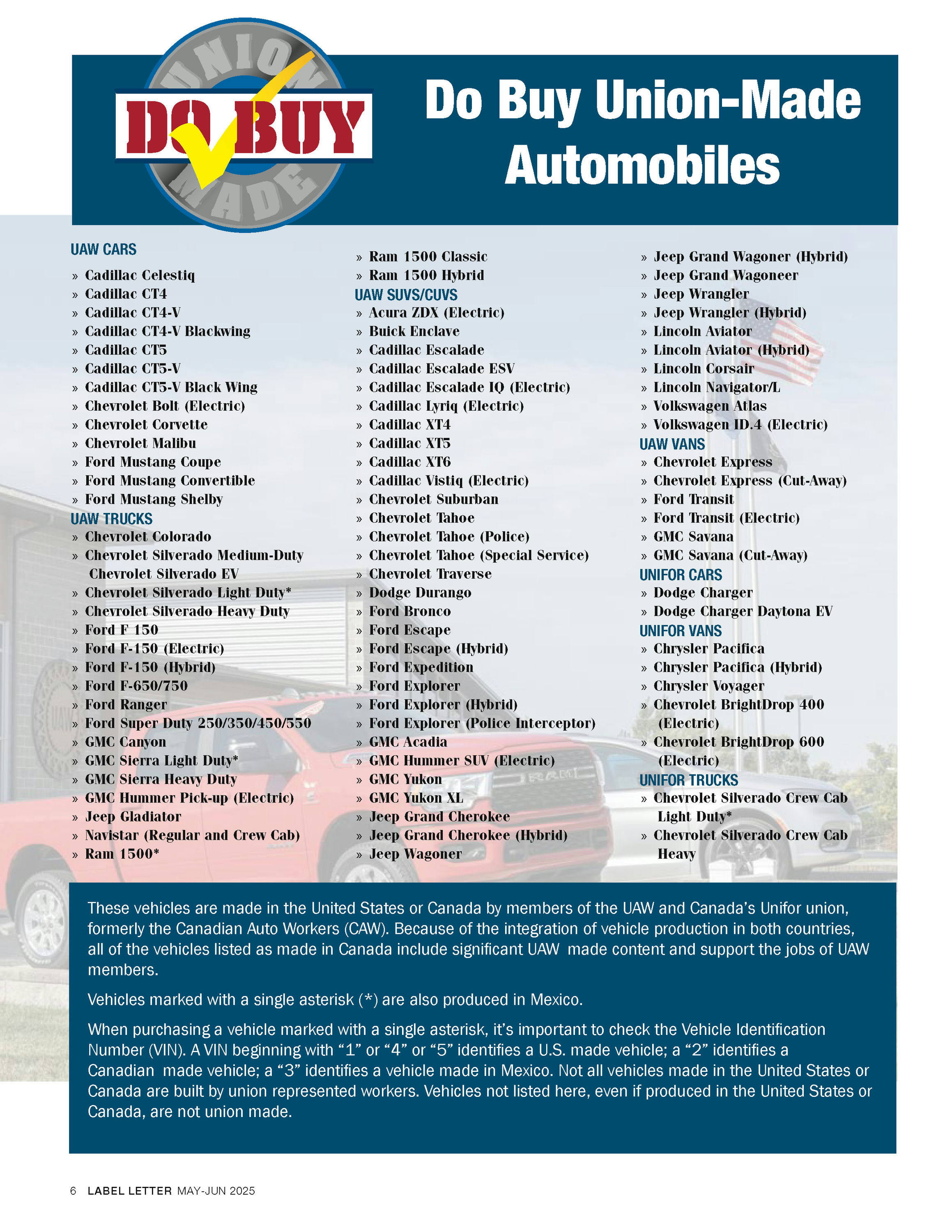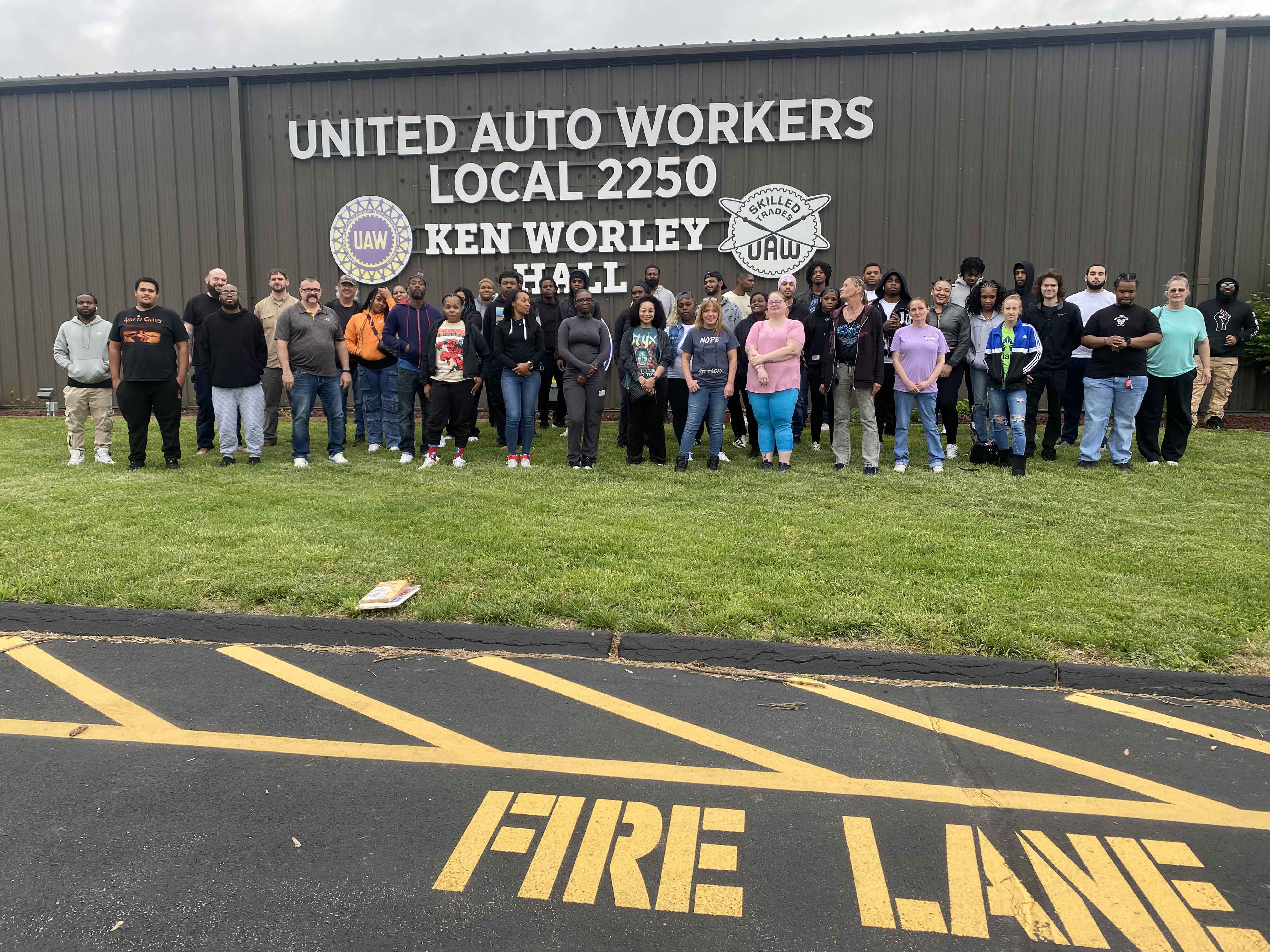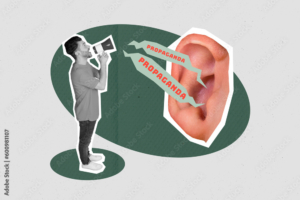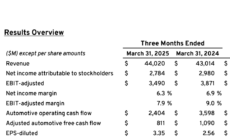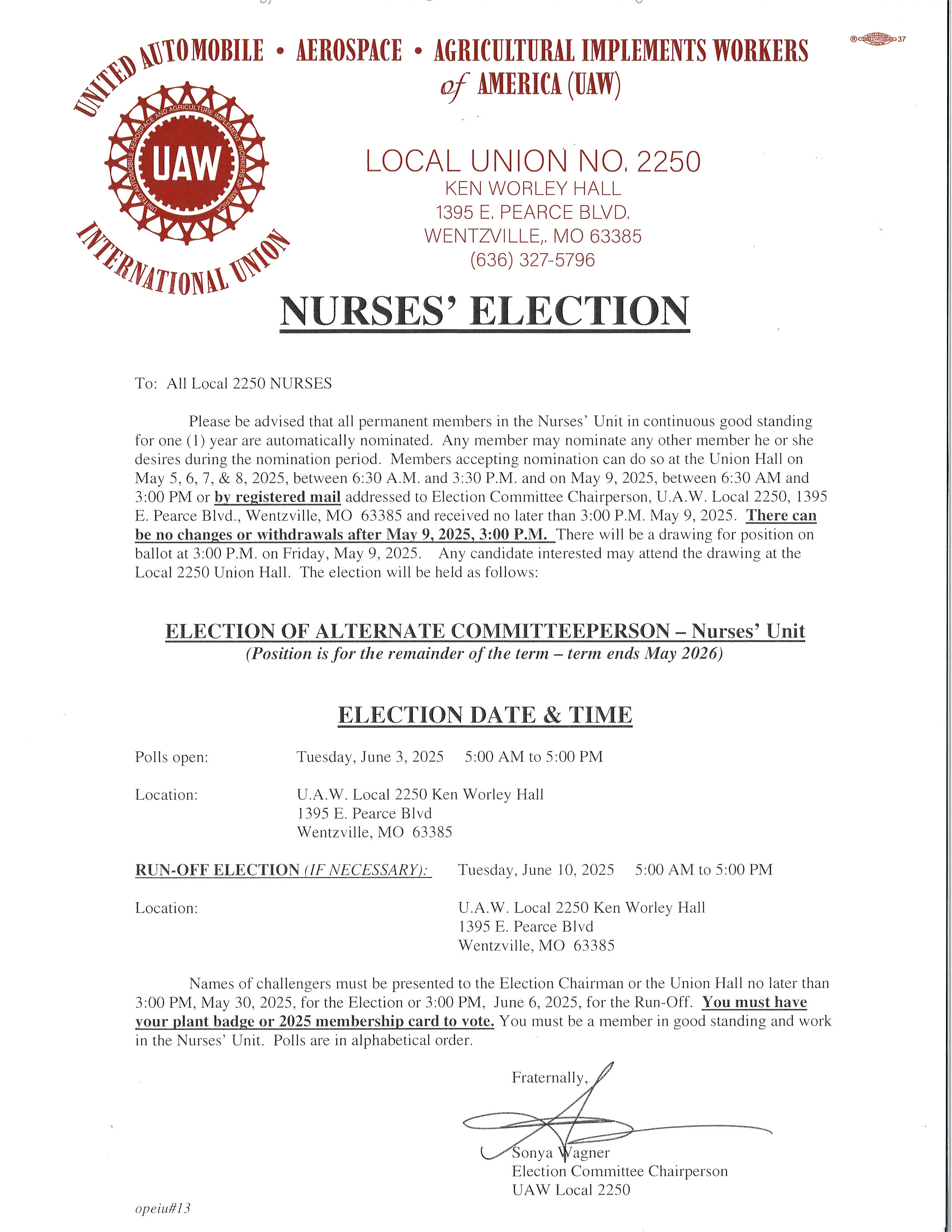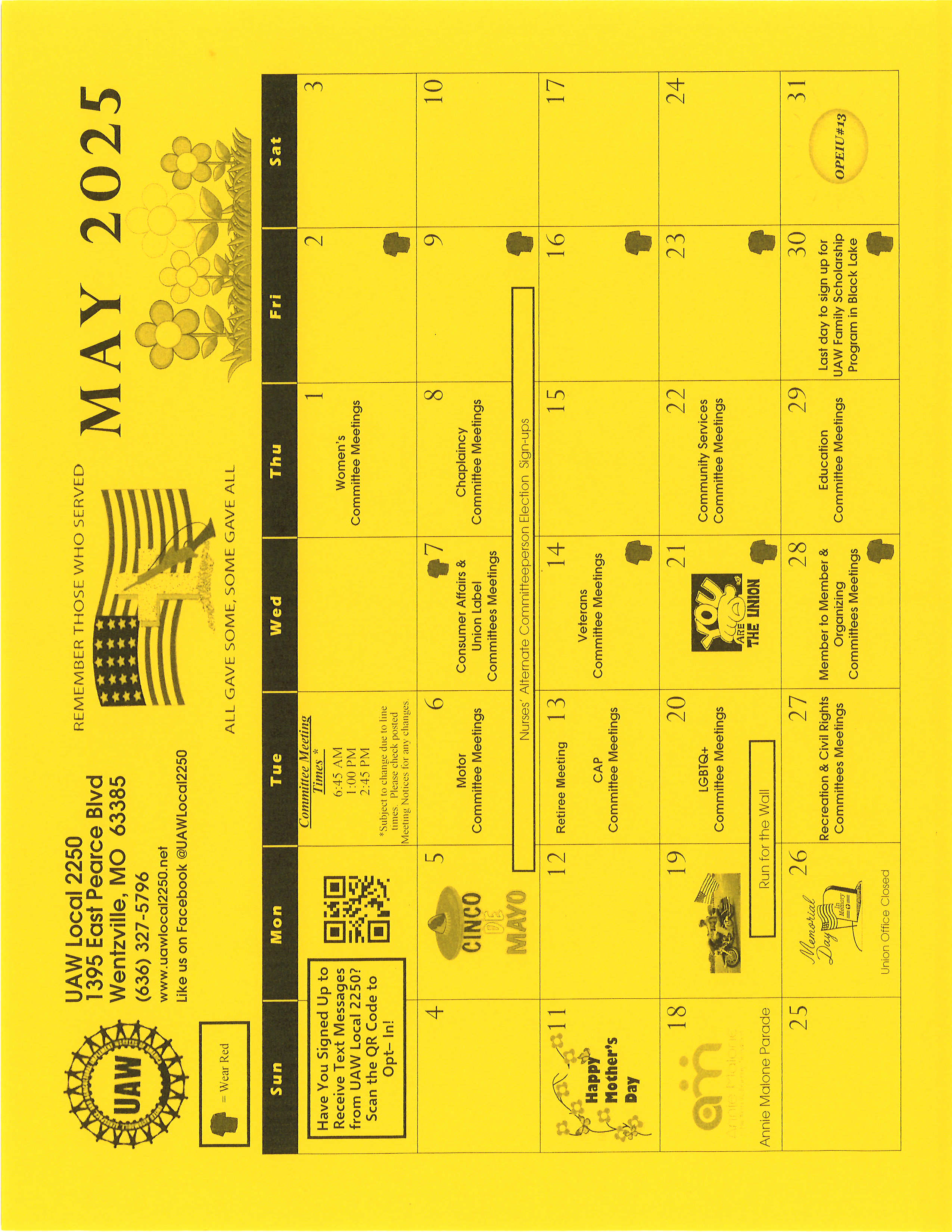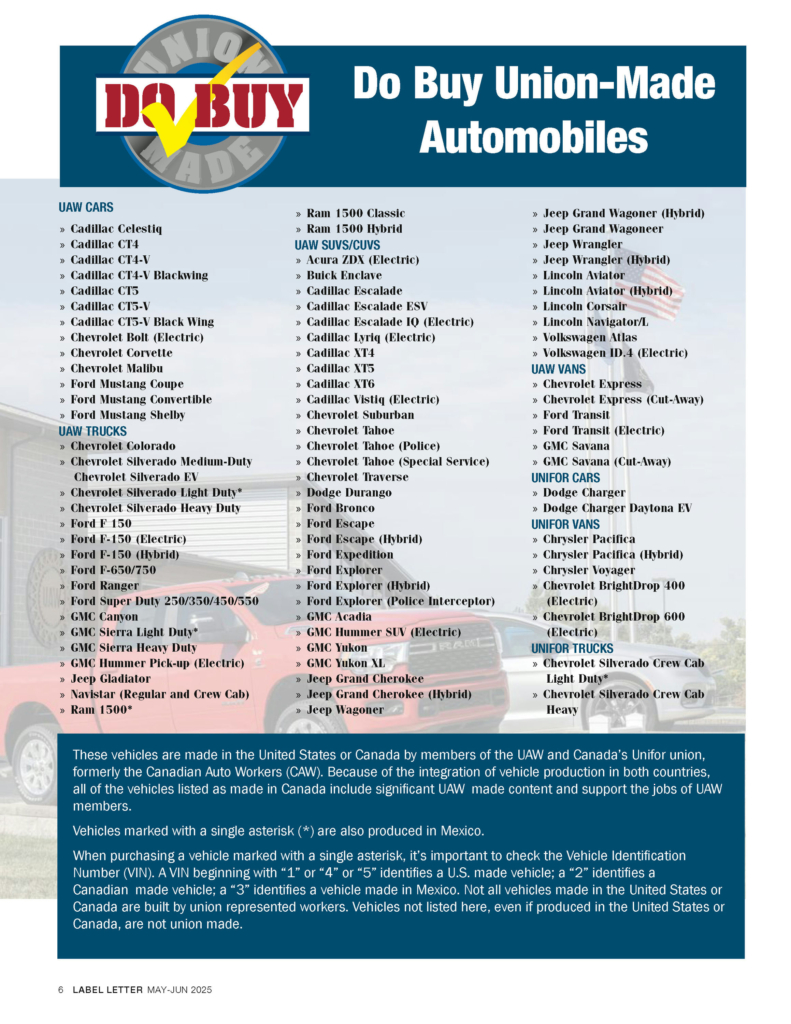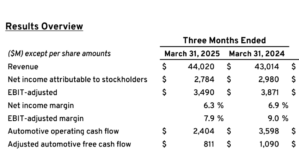-
Sunday Point/Counterpoint: Buying American - 17 hours ago
-
Say Hello to 51 new UAW Local 2250 members! - April 30, 2025
-
R4 Director Campbell and AD DeSpain Talk Tariffs, Politics, and More - April 30, 2025
-
Paid Leave: The Courts Stand With Voters, Will Republican Senators? - April 30, 2025
-
2025 Q1: Here’s What Profit Sharing Looks Like To Start The Year - April 29, 2025
-
This Week’s Missouri Labor Report - April 27, 2025
-
Women’s Committee Report: This Years Easter Event! - April 26, 2025
-
Guest Opinion: The Pro-Act Would Protect Against The Bosses Axe - April 25, 2025
-
Attention Nurses: It’s Election Time! - April 25, 2025
-
Cinco de Mayo, Memorial Day, Mothers Day, Meeting Day: !It’s May! - April 24, 2025
Sunday Point/Counterpoint: Buying American
Should you buy American? Does it make a difference? Nolan Finley of the Detroit News argues in his May 3rd opinion piece that American made ain’t what it used to be…
Not so long ago if you looked out the window and saw a Ford, GM or Chrysler product sitting in the driveway, you could feel certain your car payment was going to help keep your neighbors working and your communities fat with tax dollars.
“I drive an American car” was once something quite important to say around here. If it were a Honda or Toyota in your driveway, you weren’t considered a real Detroiter. There were parking lots where your vehicle wasn’t welcome, and even some where it wasn’t safe.
The piece concludes that with all the outsourcing and global integration that there isn’t much of a difference between American made and foreign made vehicles. He makes some good points but misses the real issue. Wages, Hours, and Working Conditions are the issues between companies and products sold in the US.
” I support better wages and working conditions” should still be an important thing to say. One of the best ways to do this is to buy union made vehicles. Union made vehicles bring with them better pay, stronger communities, and protection against your dollars being used to exploit your fellow citizens. The Economic Policy Institute describes How Union Help All Workers.
- Unions raise wages of unionized workers by roughly 20% and raise compensation, including both wages and benefits, by about 28%.
- Unions reduce wage inequality because they raise wages more for low- and middle-wage workers than for higher-wage workers, more for blue-collar than for white-collar workers, and more for workers who do not have a college degree.
- Strong unions set a pay standard that nonunion employers follow. For example, a high school graduate whose workplace is not unionized but whose industry is 25% unionized is paid 5% more than similar workers in less unionized industries.
These are just a few of the benefits of unionization. All of these have spillover affects for their communities that make them economically stronger with better opportunities for all.
If you want your vehicle purchases to help make a better world the distinction isn’t American vs Foreign but Union vs Non-Union. The UAW publishes a list of union made vehicles from the US and Canada every year. The UAW Buyers Guide can be read and downloaded here.

